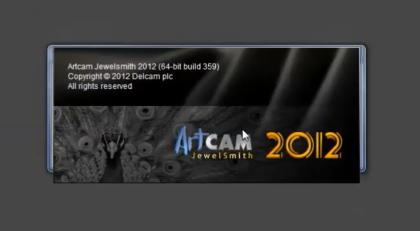- How To Generate 3D Design G-Code In ArtCAM 2012(the rotary device is in front )
- Here are some simple G-code about 3 Design .
- Cylinder
- Dragon column
The video is as follows.
The steps are as follows.
- Click “New Project”
- Choose “Assembly/Import”
- Choose the model you want to engrave
- Click “Nudge/Centre Object”.After that,the model centerwill as same as coordinate center.
- Click “Advanced/Set World Centre”in order to determine thecoordinate system
- Click “Scale”
- Input model size,”All” means that the model is scaled up or down.
- Click “Create Rotary Relief”of Assembly
- The function of“Toggle Relief Preview”(F10)is preview in 2D.The yellow representation of the workpiece needs to be retained. Reddish brown indicates blank and needs to be deleted
- Click “Model/Rotate 90 Degrees/Clockwise”
- Becausethe rotating device is along the X axis, the workpiece also needs to be along the X axis. Rotate the model 90 degrees to make the model parallel to the X axis.
- Click “CreateRectangle”for selecting the model
- Pls pay attention to the edge of the rectang
- Click “Model/Crop”to delete blank area
- Click ““Model/Set Position”to set model location,then choose “Bottom left pixel”and all axis zero the value
- Click “3D View”“Toggle Assembly Visibility ”to close the original model
- Check if the XY axis zero is at the top of the model
- Click “Reliefs/Create Rotary Relief”,then click “Wrap Y values(around X axis)”
- The model is set up, followed by the tool path.
- Choose “Toolpaths/New 3D Toolpath/Machine Relief”.
- In area “Finishing Options”,choose tool and set the parameters as what you want.
- In area “Roughing Options”,choose tool and set the parameters as what you want
- Alowance is the roughing allowance, which can be set slightly larger, 3-5mm best.
- Click”Define Material”.“Material Thickness”here is the radius of workpiece.
- Check if the thickness of the material is greater than the radius of the model. Must be greater than.
- Then “Calculate Now”
- Click “Toolpaths/Simulation/Simulate All Toolpath”
- Click “Toolpaths”
- Please note the contents of the Machine Relief in the upper left corner
- Click “Toolpaths/Save Toolpath As…”
- Name the file
- Select the post processor:Rotary(Y Axis→C)
- This post-processing can only save one type of knife at a time. Two are used, so save them separately.
- Open the file you just saved
- You can see the tool path you saved before

